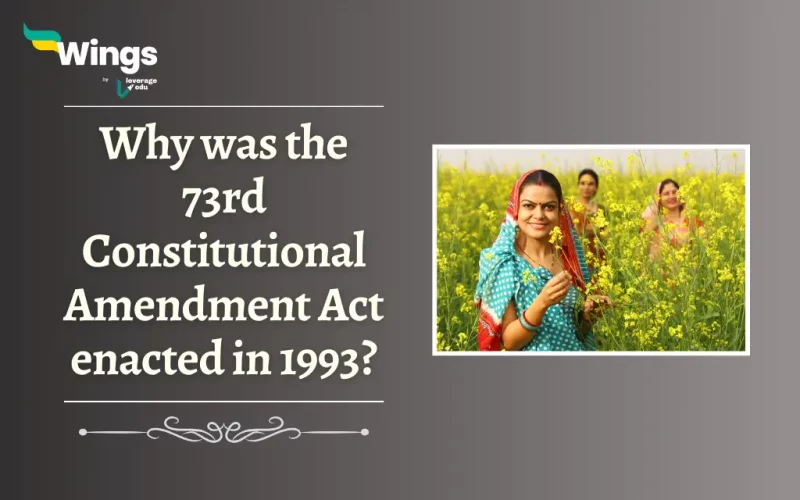The case of Prabhakaran Nair vs. the State of Tamil Nadu in 1987 led to the 75th Amendment Act. This Act was passed by the Parliament of India in 1992 and it was enacted on the 24th of April 1993. Furthermore, it gave the Panchayati Raj system a Constitutional status. Additionally, Panchayats in a village is a concept that existed in India for as long as we can date back our history. However, with no right guidance and a lack of fair elections, this system never got the status of official Panchayats. Moreover, it was a combination of factors that made it this weak- shortage of financial resources, irregular elections, and poor division of representation of weaker sections (women, SCs, STs, etc). Read on to learn more about why was the 73rd Constitutional Amendment act enacted in 1993 and the Features of the Amendment Act.
Also Read: What is the Difference between National Party and State Party?
Introduction of the 73rd Constitutional Amendment Act
India dreamt of village self-governance (Gram swaraj) but the Panchayati Raj system (PR) lacked constitutional power. Despite committees and a three-tier structure, PR remained weak due to infrequent elections and government control. Finally, in 1992 the 73rd Amendment Act gave PR constitutional status to address these issues.
Also Read: What is the National Finance Commission?
Features of the 73rd Constitutional Amendment Act
The key features of the Amendment Act are as follows:
- The Panchayati Raj system got the opportunity to enter the Hon’ble Constitution of India.
- Article 243-B mentions that all 28 states of India must have panchayats on their land.
- Article 243-D delivers insistence on the representation of women and SC/STs in the panchayat of a state.
- Article 243-G states that every individual state must delegate three key things in their panchayats- powers, responsibilities, and authority.
- The Panchayats in every state are chosen for a fixed tenure which is 5 years.
- Different State Election Commissions are assigned to conduct fair elections for all the village panchayats.
- The financial position of a panchayat is regularly kept track of by the State Finance Commission every five years.
Related Blogs
Lastly, we hope you liked our blog and gained an understanding of Why was the 73rd Constitutional Amendment Act enacted in 1993. Moreover, you may even read more blogs and empower yourself with knowledge regarding Civics and Polity!
 One app for all your study abroad needs
One app for all your study abroad needs













